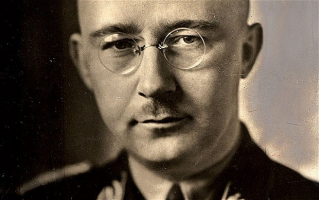Top 10 Interesting Facts about Julius Caesar
Famous Roman statesman Julius Caesar played a key role in the developments that resulted in the fall of the Roman Republic and the establishment of the Roman ... read more...Empire. The First Triumvirate was an alliance that Julius Caesar and his associates created in 60 BC, and it ruled Roman affairs for several years. Caesar gained power as a result of several achievements, particularly his triumphs in the Gallic Wars, which concluded in 51 BC. Since Caesar is regarded by many historians as one of the greatest military leaders in history, a large portion of his life is known from his military campaigns. Here are the top ten most interesting facts about Julius Caesar that might be of interest to you.
-
On July 13, 100 B.C., Gaius Julius Caesar entered the world, but he probably wasn't born by cesarean section, which is one of the most interesting facts about Julius Caesar. According to Philip Freeman, a professor of classics at Pepperdine University and the author of the biography "Julius Caesar", it is highly unlikely that Caesar was born by surgery thousands of years before anesthesia or antibiotics. Although the operation was available at the time, it was typically fatal to the mother and was only used to try to save a child when a pregnant woman was already dead or close to death. Aurelia, Caesar's mother, actually lived for 50 years after her son was born.
The Latin form of Caesar's name, which closely resembles the verb "to cut", is possibly where the story about Caesar being born by cesarean section originates. There have been other theories about the name's origins, such as the idea that the original member of Caesar's family line may have possessed "caesars," or long, flowing hair.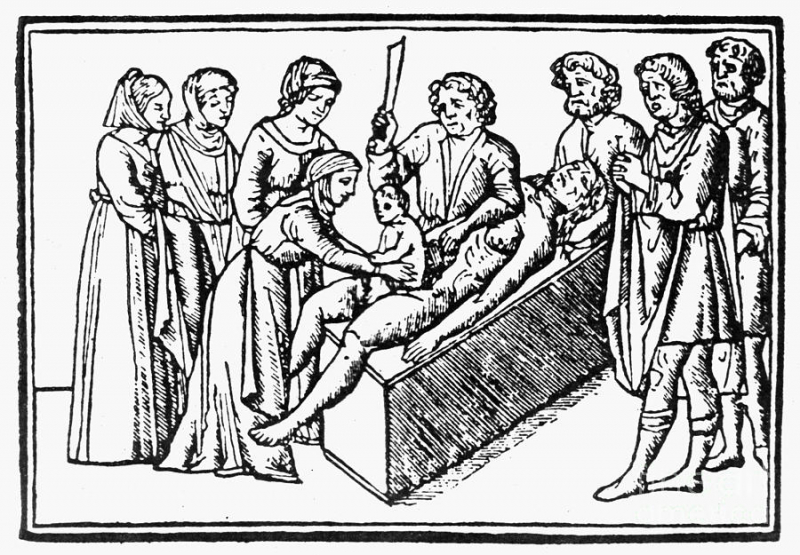
Photo: https://fineartamerica.com/ 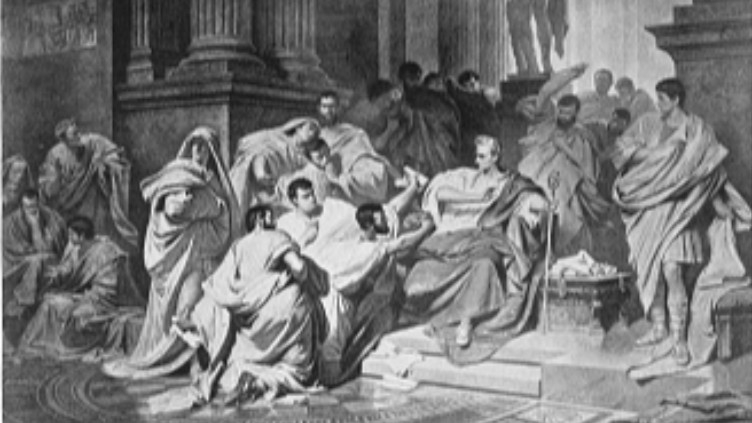
Photo: https://misbar.com/ -
In 84 B.C., when still a youth, Caesar wed Cornelia, who would become his first wife. Within a few years, a general by the name of Lucius Cornelius Sulla seized control of the roman republic and executed everyone he deemed to be an enemy of the government. Sulla had been an adversary of Lucius Cornelius Cinna, Caesar's father-in-law (d. 84 B.C.). Sulla commanded Caesar to divorce Cornelia as a result, but Caesar refused. Caesar left Rome and became a fugitive since he was aware that such defiance might cost him his life. Caesar developed malaria while fleeing and was subsequently apprehended by one of Sulla's troops, who made him pay a hefty bribe nearly all of his money to escape. Caesar was reunited with Cornelia in Rome when some of his powerful friends and family members eventually convinced Sulla to permit them to leave. In 76 B.C., the couple gave birth to Julia Caesaris, a daughter.
Caesar wed Pompeia, a Sulla descendant, in 67 B.C. after Cornelia passed away in 69 B.C. Pompeia attended the Bona Dea ("good goddess") festival, an annual meeting of Roman women that was hosted at Caesar's home in 62 B.C., when Caesar was acting as the "pontifex Maximus," or head priest, of the state government. The celebration was intended to be for ladies only, but a young aristocrat posed as a woman and interrupted the party. He was discovered at some time throughout the evening. There was a scandal, and it was said that the man was either trying to seduce Pompeia or was in love with her. Caesar decided to divorce Pompeia even though it was unclear whether she had voluntarily participated in the incident. He stated that his wife "must be above suspicion."
Calpurnia, Caesar's third wife, was a teenager when they wed in 59 B.C., and they remained together until his death. He was a notorious womanizer who had several mistresses, including Cleopatra VII, the Egyptian queen, and Servilia, whose son Marcus Brutus participated in the assassination of Caesar in 44 B.C.
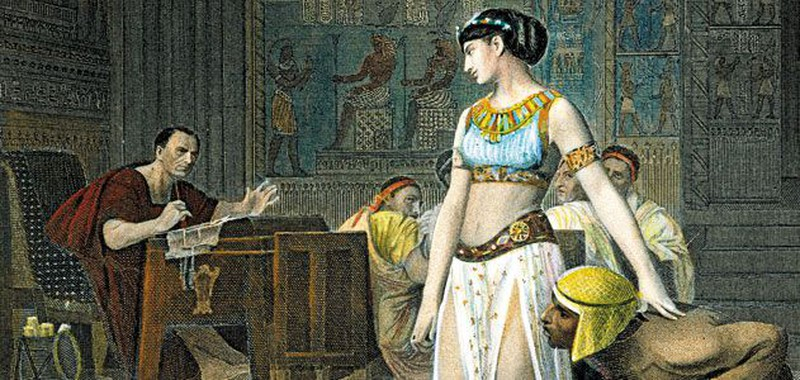
Photo: https://misbar.com/ 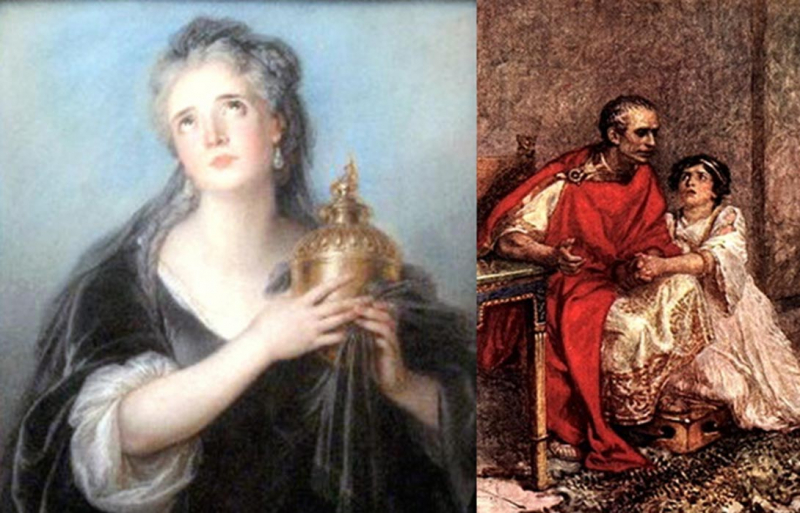
Photo: https://www.ancient-origins.net/ -
Caesar traveled to Egypt in 48 BC to find the Roman general Pompey, one of his rivals. While there, he encountered Cleopatra who was engaged in a civil war with her younger brother and fellow monarch Ptolemy XIII (per ancient Egyptian custom, the two ruled under the formal title of husband and wife). Caesar asked the couple to come to meet him so they could settle their dispute after announcing himself as the father of the siblings' siblings' executor of the will. Some tales claim that Cleopatra slipped herself into a laundry bag to meet Caesar for the first time after Ptolemy's army prevented her from going to the palace where he was staying. Roman general Caesar and Cleopatra, who was half his age, fell in love. Around 47 B.C., Cleopatra gave birth to Ptolemy Caesar, a boy who was thought to be Caesar's offspring. He was known as Caesarion, or Little Caesar, by the Egyptians.
Ptolemy XIV, Cleopatra's brother, and the fellow king were assassinated not long after Caesar was killed in 44 B.C. (Ptolemy XIII, her former co-regent, had passed away around 47 B.C.) Although it was never verified, there was a rumor that Cleopatra poisoned Ptolemy XIV to anoint Caesarion as her co-ruler the following year. He adopted the name, Ptolemy XV.
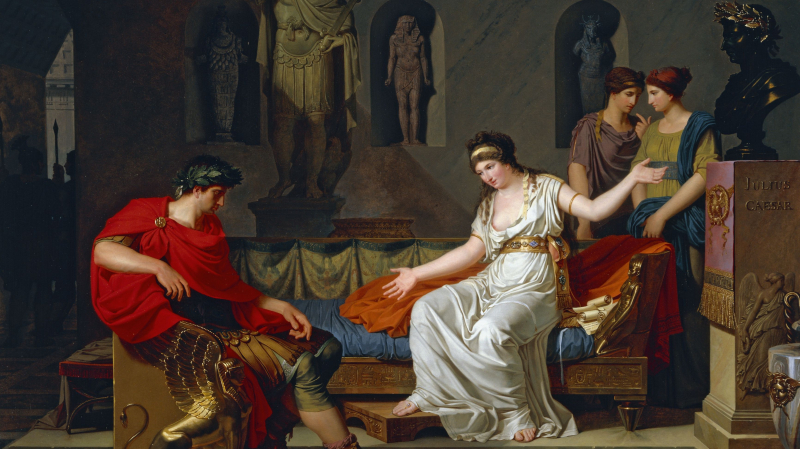
Photo: https://www.thoughtco.com/ 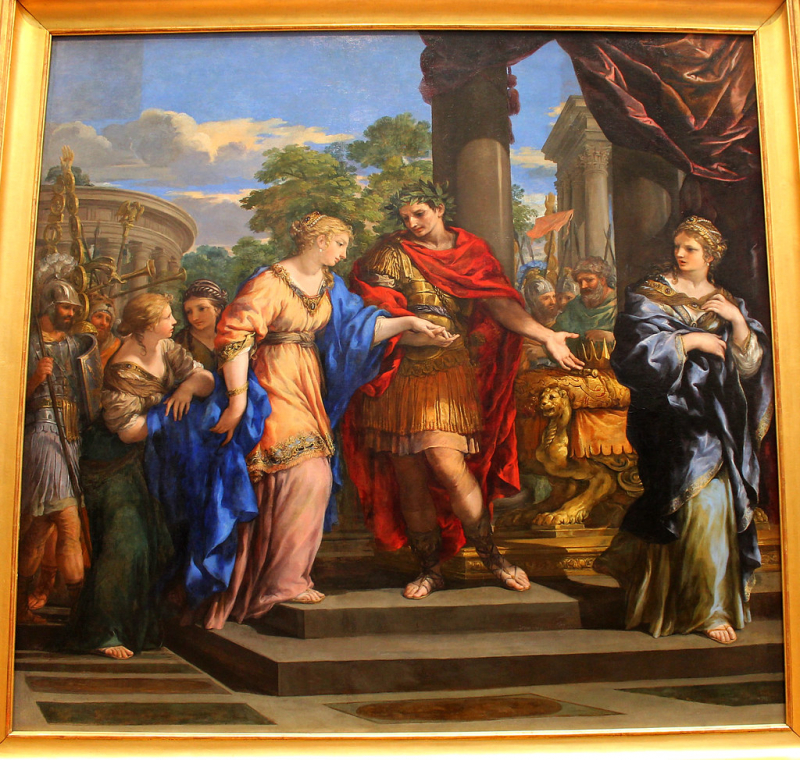
Photo: https://www.flickr.com/ -
There were 355 days in a year according to the Roman calendar that was in use before Caesar came to power, which was based on the lunar cycle. The solar year, which is the length of time it takes for the Earth to complete one full round around the sun, was 10 ¼ days shorter in this system. Roman officials were supposed to add extra days to the lunar calendar each year at their discretion to keep it in sync with the seasons, but this didn't always happen, leaving the calendar confusing, out of sync with the seasons, and vulnerable to abuse by politicians looking to extend their terms in office. Caesar adopted a new system, the Julian calendar, which had 365 days in a year and went into operation in 45 B.C., after meeting with the astronomer Sosigenes. The calendar was designed to be following the solar cycle, but Caesar also added a day, known as a leap day, every four years to make up for the fact that the solar year is 365 ¼ days long.
Until the Gregorian calendar, which was somewhat modified from the Julian calendar, was established in the late 16th century, the former remained the norm. The Gregorian calendar is the most popular civil calendar in use today.
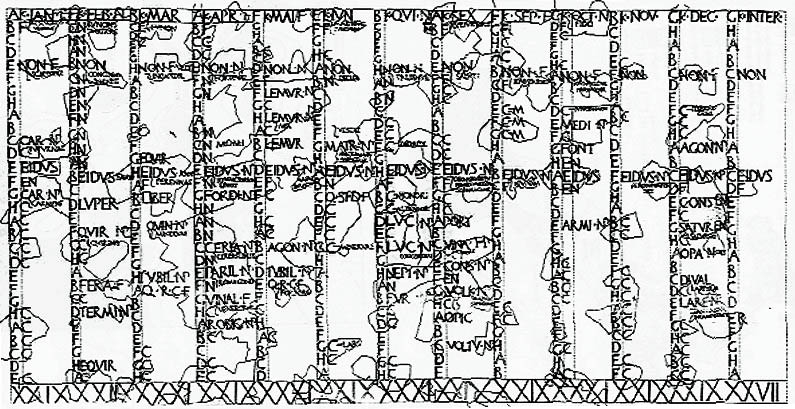
Photo: https://fli.institute/ 
Photo: https://www.getreading.co.uk/ -
The first Roman politician to have his likeness struck on coins during his lifetime was Julius Caesar. No living person had ever appeared on a Roman denarius before 44 BC. Thus, Caesar's influence and power were promoted by this widely disseminated image.
The Senate most certainly viewed this act as an intolerable display of hubris, even though the adoring public may not have cared. A Roman denarius, or silver coin, was formerly a common form of payment. But nowadays, collectors are prepared to shell out hundreds of dollars for one of these artifacts!
How can one tell Julius Caesar's portrait apart from those of other historical Roman figures? There are a few obvious warning indicators, though! One reason is that Caesar's images appear more authentic than romanticized. This implies that it can see whatever creases or flaws he may have had, including those in his neck.
He is typically an elderly man, maybe signifying his wisdom. Even though it might not be able to notice these specific characteristics in such tiny coins, it can identify it is him because of his oversized and crooked nose, which is seen in pictures of his side profile.
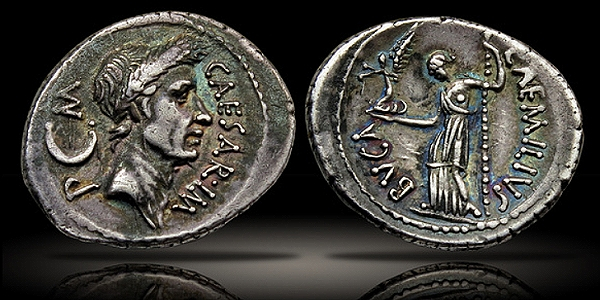
Photo: https://gauday.com/ 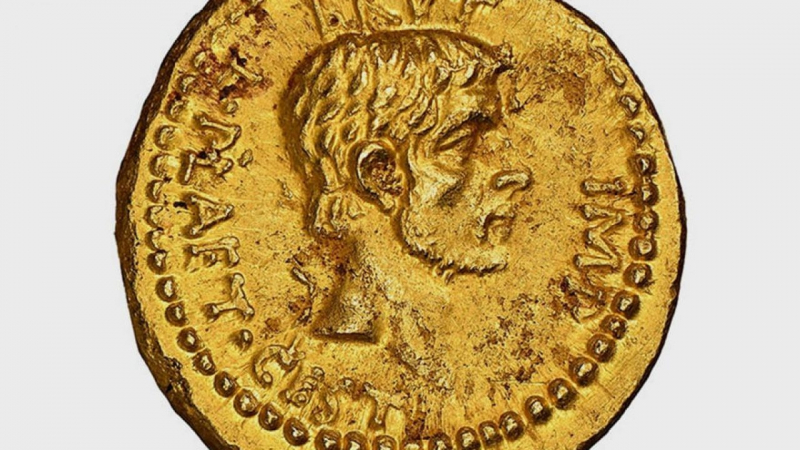
Photo: https://instoremag.com/ -
It is undeniably true that Caesar was a popular leader. He achieved a lot of progress during his rule to lower debt, reduce unemployment, and improve living conditions for Romans. First, Caesar suggested new legislation that reduced the amount of money that one person could carry about them at any given moment and redistributed land to the needy.
Additionally, Caesar provided the underprivileged with employment opportunities in Rome's colonies abroad and even extended citizenship to foreigners residing in the Republic. Caesar also made several public construction projects happen for the Roman people. To begin with, Caesar built the Forum Julium, a new harbor, a canal, a Senate house, and more all of which are still accessible today!
Even after he passed away, Caesar continued to give! His villa, grounds, and art gallery were allocated to the general public in his will. Additionally, he left his wealth to be distributed among the citizens of Rome, giving a percentage of his own money to each one of them.
There is little doubt that Caesar tried to show the Roman people that he cared. Julius Caesar was able to rise through the ranks and become one of history's most powerful leaders thanks to the respect of all of Rome.
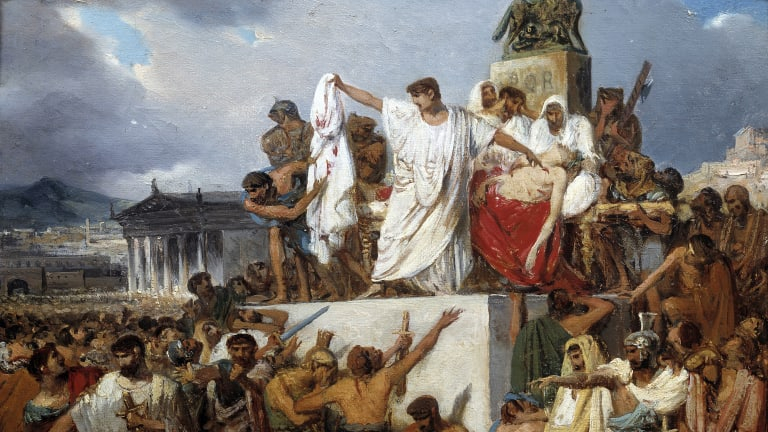
Photo: https://www.history.com/ 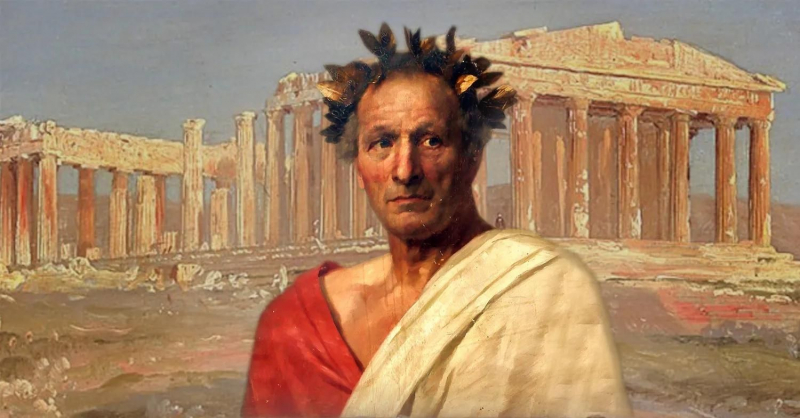
Photo: https://thehistorianshut.com/ -
The Roman Senate ordered Caesar to dissolve his army and return to Rome once his tenure as governor of Gaul had come to an end. Caesar decided to revolt against Pompey and maintain his pride out of concern that he would face treason charges and live a dishonorable life. This is also one of the most interesting facts about Julius Caesar.
This choice led Caesar, one fateful day in 49 BC, to defy the Senate's directives and cross the Rubicon river. He started a terrible civil war that would last nearly five years by illegally crossing into Italy. But this one action would alter the path of Roman history irrevocably.
Along with his strong and well-trained legions, Caesar pursued his adversaries to the heel of Italy and eventually to Greece. Although it seemed like Caesar always had the upper hand over his adversaries, at one point during the Battle of Pharsalus, Caesar's men were compelled to retire.
Pompey eventually escaped Egypt despite this one-time setback, where he was killed at the king of Egypt's order. Caesar enjoyed his successes after the Civil War was over and grew to be even more powerful. In 44 BC, when he eventually made it back to Rome, he installed himself as dictator for life.
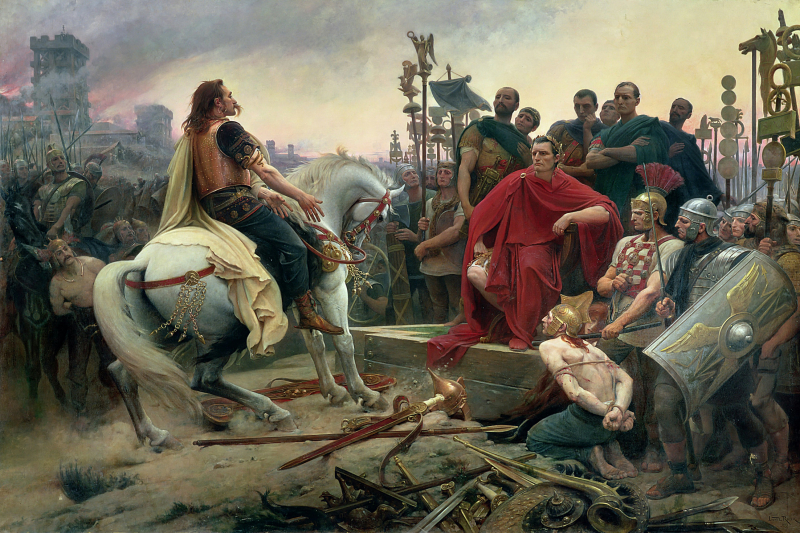
Photo: https://en.wikipedia.org/ 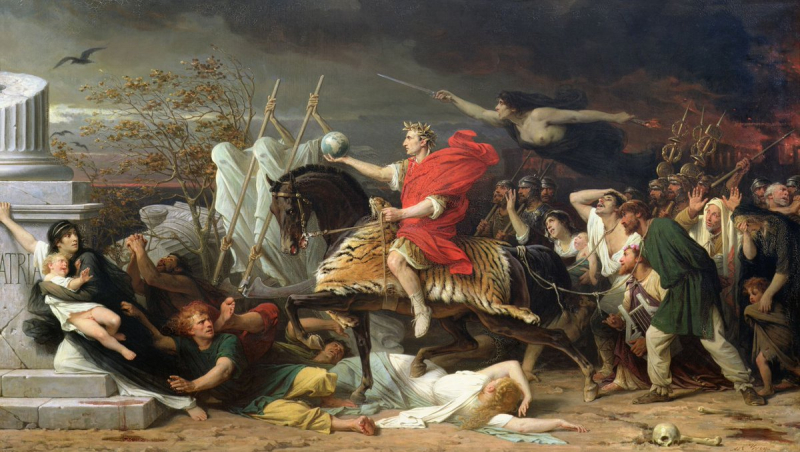
Photo: https://twitter.com/ -
So what motivated Julius Caesar to achieve so much? According to two historical traditions, Caesar was influenced by the legendary monarch and conqueror of Macedonia, Alexander the Great. Caesar had a startling epiphany while passing by a bust of Alexander the Great at Cadiz, which is now known as modern-day Spain.
At the time, Caesar was approaching thirty years old and aging swiftly, but he had made no progress that he considered to be noteworthy. Caesar thought it was time for him to make a change in his own life after admiring how Alexander had accomplished so much before his passing at the age of 32. After this occurrence, Caesar developed the drive to do whatever it takes to uphold his family's reputation and himself. For the second half of his life, he made his name known to everyone, whether it was because of this particular realization or something else.
In today's lingo, ambition may be seen as a good thing, but Shakespeare's The Tragedy of Julius Caesar, which debuted at the illustrious Globe Theatre in 1599, conveyed the opposite message. Shakespeare makes the argument in his play that Caesar's ambition and desire to excel led to an imbalance in society. As a result, some individuals took all necessary measures to level the playing field. In other words, Caesar's ambition was not a good thing; on the contrary, it was what ultimately led to his demise.
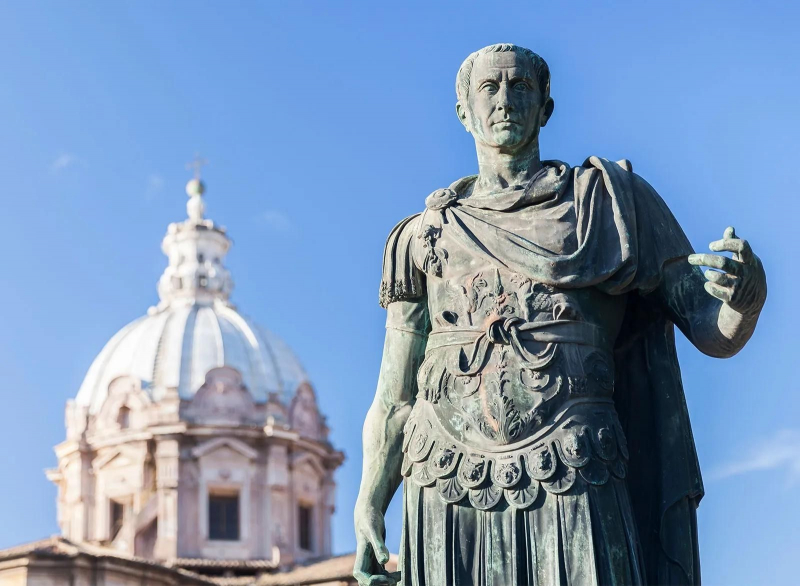
Photo: https://www.britannica.com/ 
Photo: https://www.simonandschuster.com/ -
In 44 BC, Caesar was killed in the Pompey Theatre Curia. Here, more than sixty conspirators took part in the killing out of fear that Caesar would overturn the Senate and rule as king, which is one of the most interesting facts about Julius Caesar. Caesar has stabbed a total of 23 times, but only one of those wounds to his aorta proved deadly.
The Senators were very cunning to involve so many individuals in the murder; this precluded any one person from accepting responsibility. The chief assassination conspirator, Brutus, was once a personal friend of Caesar, adding tragedy to the already terrible tale. Shakespeare's well-known tragedy, in which Caesar's final words are "even you, Brutus?" this betrayal is a major topic. Caesar's real final words, however, remain unknown and hotly contested by academics.
Caesar was well-liked in Rome. Simply put, the Senate plotted a horrific killing since the extent of his support made him a formidable political tyrant. So, how did they inform the public about this? They cried out that Caesar was a tyrant and that they thought that many people, not just one, should lead the Republic. The devastated Roman citizenry, who believed that those responsible for the murder were traitors.
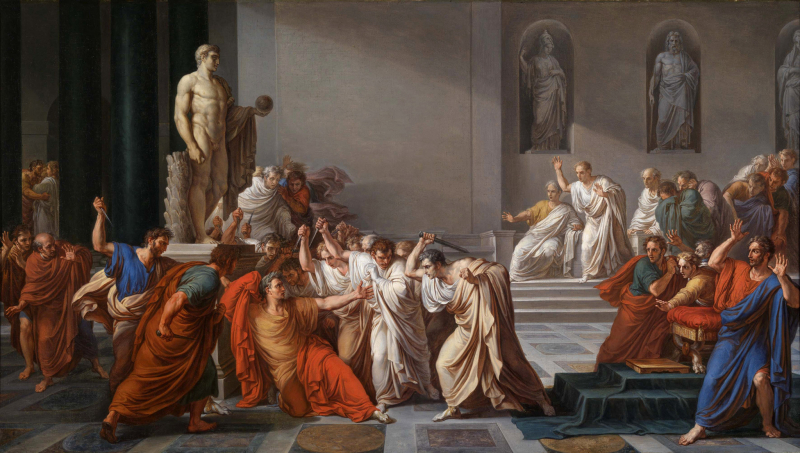
Photo: https://vi.wikipedia.org/ 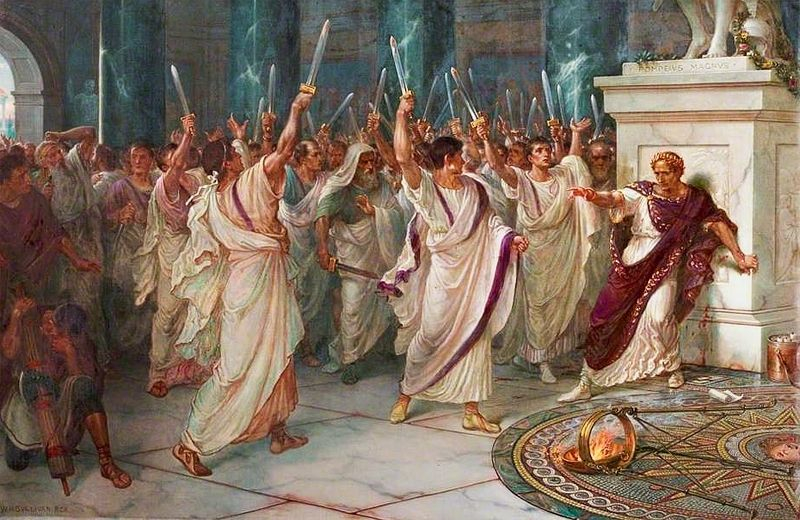
Photo: https://vi.wikipedia.org/ -
The killing of Caesar was intended to preserve the Roman Republic and prevent any one individual from assuming total control, according to the conspirators. However, things didn't turn out as they had hoped. Caesar's killers fled as his lifeless body lay in the Pompeian Theater. Only a few days later, Caesar's body was brought to the Roman Forum for a large funeral that was attended by mourning Roman citizens who were still in shock over the passing of their idol.
There, Caesar's buddy Marc Antony delivered a speech that inflamed the Roman populace. The Liberators' Civil War, in which Marc Antony, Octavian, and the enraged Roman populace fought against the perpetrators of Caesar's assassination, was prompted by this sequence of events. The end of this conflict and the beginning of the new Roman Empire came with the accession of Octavian to the throne.
Rome's populace burned their beloved dictator there in the Roman Forum because they were so heartbroken by his death. Many years later, his heir, Octavion, erected the Temple of the Deified Julius Caesar in his honor on the same site. Caesar's cremation site is still accessible to visitors today; a mound marks the location where his remains were burned almost 2,000 years ago. Julius Caesar has not been forgotten because flowers and money in his honor are frequently placed on the mound.
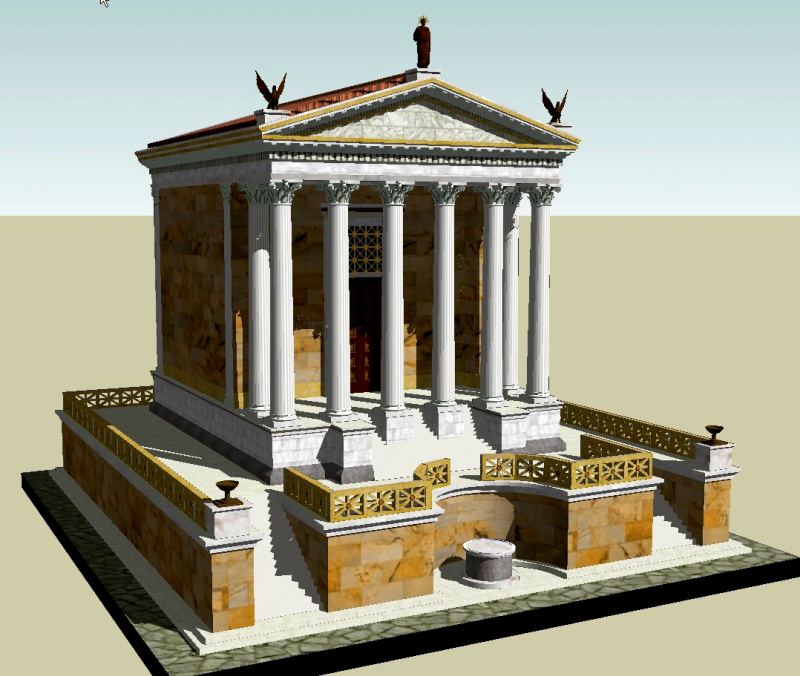
Photo: https://en.wikipedia.org/ 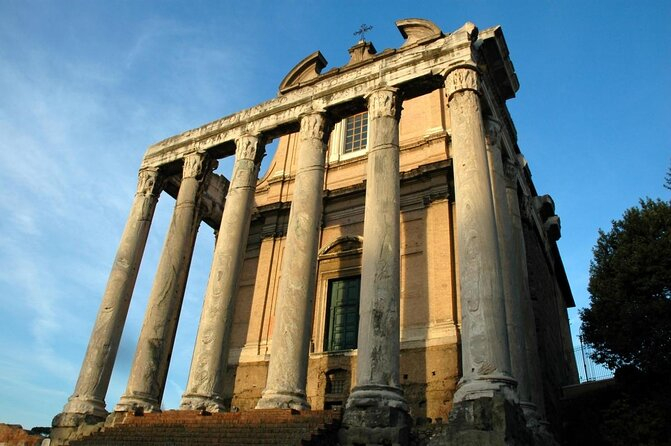
Photo: https://www.viator.com/




























